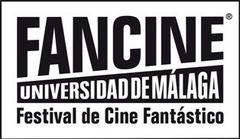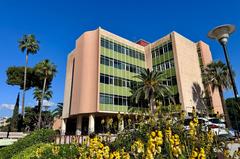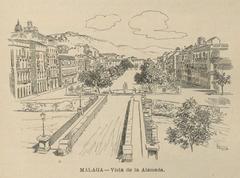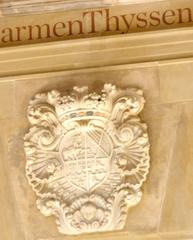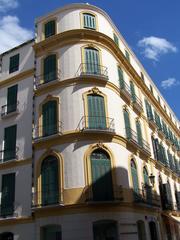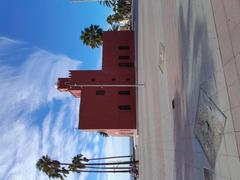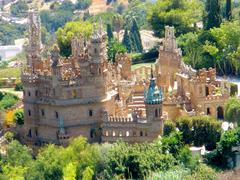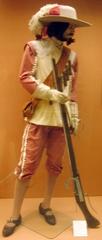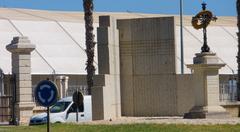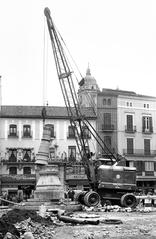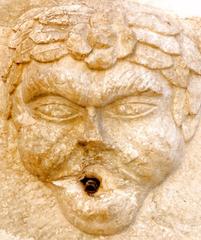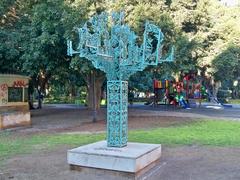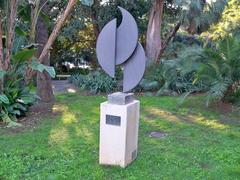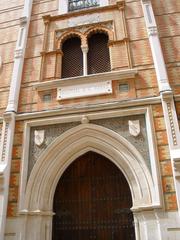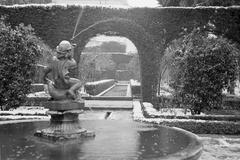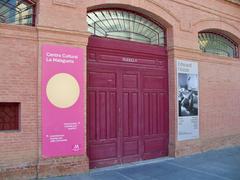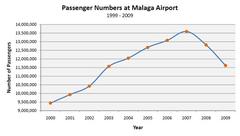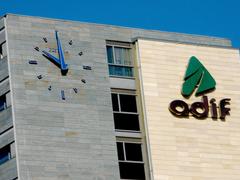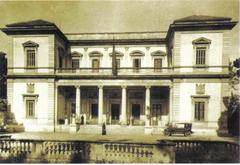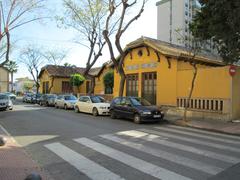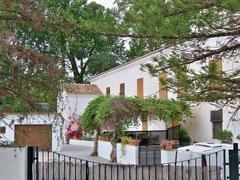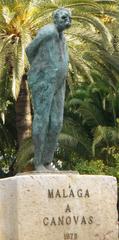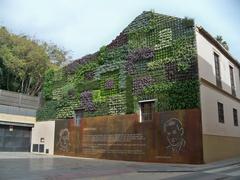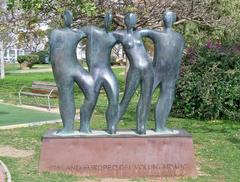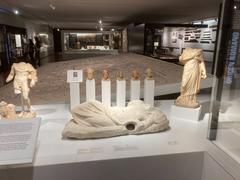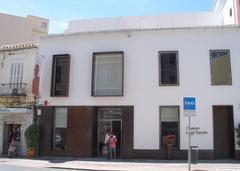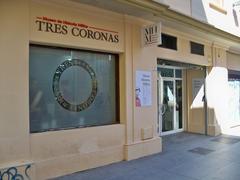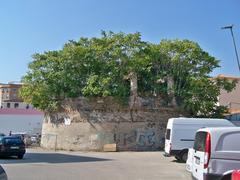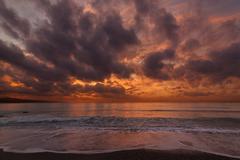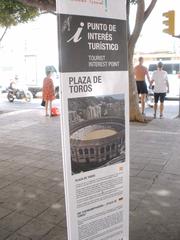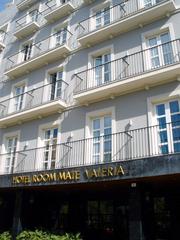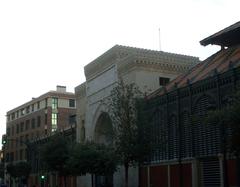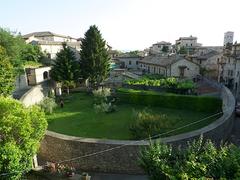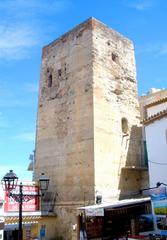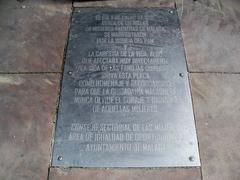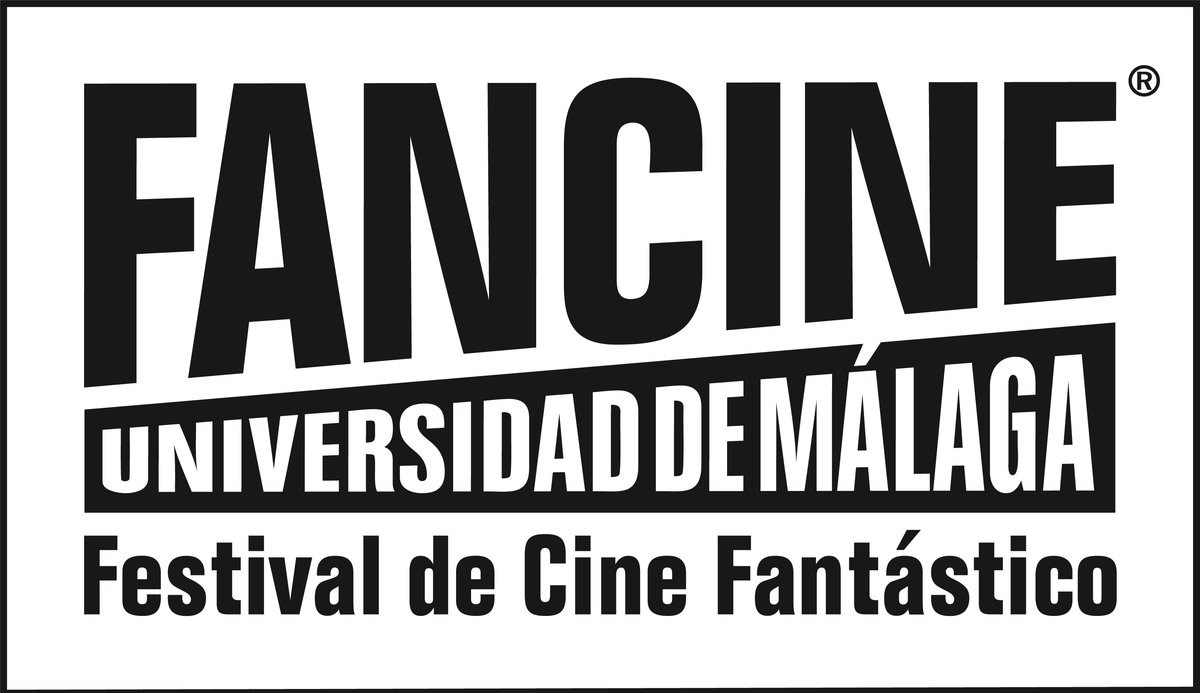
Universidad de Málaga Visiting Hours, Tickets, and Historical Information
Date: 14/06/2025
Introduction to Universidad de Málaga: A Gateway to History, Culture, and Innovation
Located in the vibrant city of Málaga on Spain’s Costa del Sol, the Universidad de Málaga (UMA) is a dynamic institution that merges academic excellence with a rich historical and cultural legacy. Established officially in 1972, yet with educational traditions stretching back to the 19th century, UMA stands as a pillar of learning, research, and cultural engagement. Its two principal campuses—El Ejido in the city center and the modern Teatinos campus—offer not only diverse academic environments but also proximity to Málaga’s iconic landmarks such as the Alcazaba fortress and Roman Theatre (andalucia.com; uma.es).
UMA is more than a university; it is a cultural engine, hosting renowned festivals like FANCINE and RETROPIXEL, and plays a crucial role in Málaga’s economic growth as part of the city’s “productive triangle,” alongside the airport and technology park (edurank.org). Its strategic location allows visitors to effortlessly explore Málaga’s historic city center, exceptional museums, and Mediterranean beaches, making any visit both intellectually stimulating and culturally rewarding (andalucia.com).
This comprehensive guide provides detailed insights into UMA’s history, campus life, cultural events, visitor information, and practical tips for integrating your visit with Málaga’s urban offerings. Whether your interest lies in academics, cultural exploration, or simply enjoying the city’s atmosphere, this article equips you for a memorable and enriching experience.
Contents Overview
- Historical Foundations and Evolution
- Visiting Universidad de Málaga: Hours, Tours, and Tickets
- UMA’s Role in Málaga’s Cultural and Economic Life
- Campus Locations and Accessibility
- Facilities and Visitor Services
- Tips for Visitors and Urban Integration
- Academic Calendar and Best Times to Visit
- FAQs
- Alcazaba of Málaga: History, Hours, Tickets, and Visitor Experience
- Universidad de Málaga: Cultural Events and Nearby Attractions
- Summary and Final Recommendations
- Sources
Historical Foundations and Evolution
Early Educational Roots
Although UMA was officially founded in 1972, Málaga’s commitment to higher education began in the 19th century with institutions like the School of Modern Languages and Commerce established in the 1850s. These early schools laid the groundwork for the development of a unified university presence in the city (andalucia.com).
Towards a Unified University
The 1960s saw increasing efforts to consolidate Málaga’s academic institutions. The Faculty of Political, Economical, and Commercial Sciences opened in 1963 under the University of Granada, but strong local advocacy eventually led to UMA’s independent establishment in 1972 (andalucia.com).
Growth and Modernization
UMA has since grown to host around 40,000 students annually, including 6,000 international students. The university offers more than 60 degree programs across humanities, sciences, engineering, medicine, and business (studiesabroad.com). Its two main campuses—El Ejido and Teatinos—house most faculties, libraries, sports complexes, and research centers, with additional facilities in Antequera and Ronda (andalucia.com).
Visiting Universidad de Málaga: Hours, Tours, and Tickets
Visiting Hours and Access
UMA’s campuses are generally open to the public Monday to Friday, 8:00 AM to 8:00 PM. Access to certain buildings may be limited during academic breaks or weekends. For up-to-date information, consult the university’s official calendar or contact the International Office (uma.es).
Guided Tours and Tickets
Campus visits are free, but guided tours require advance booking. Personalized visits for prospective students and visitors can be arranged through the International Office at +34 952 13 11 11 or via [email protected] (uma.es).
Exploring Málaga’s Historic Sites from UMA
UMA’s central El Ejido campus is an ideal starting point for exploring nearby landmarks such as the Alcazaba fortress, Roman Theatre, and Málaga Cathedral, all within walking distance (andalucia.com).
UMA’s Role in Málaga’s Cultural and Economic Life
Academic and Research Excellence
Ranked 18th in Spain and 562nd globally, UMA is recognized for its strength in liberal arts, social sciences, and research output, with a prolific record of publications and academic citations (edurank.org).
Economic Impact and the “Productive Triangle”
UMA is a cornerstone of Málaga’s “productive triangle,” fostering innovation and regional growth in partnership with the airport and technology park (uma.es).
Cultural Catalyst
The university hosts notable cultural events, including the FANCINE fantasy film festival and the Andalucía Audiovisual Fair, contributing to Málaga’s dynamic cultural atmosphere (andalucia.com).
Internationalization and Diversity
UMA welcomes thousands of international students, supported by the International Office and Spanish language programs at the Centro Internacional de Español in El Palo (studiesabroad.com).
Campus Locations and Accessibility
- Teatinos Campus: Northwest of the city center, 15–20 minutes by public transport. Main site for most faculties and student services.
- El Ejido Campus: Near the city center, specializing in Economics, with easy bus connections.
- Centro Internacional de Español: In the El Palo district, a short walk from the beach.
Both campuses are well served by Málaga’s public transport (buses, trains) and are accessible from the airport (uma.es).
Facilities and Visitor Services
- Libraries and Study Spaces: Comprehensive resources and digital access.
- Sports Complexes: Facilities for a wide range of activities.
- Cultural and Social Events: Organized by student committees.
- International Office: Located at Teatinos Campus, open Monday to Friday, 9:00–14:00.
Tips for Visitors and Urban Integration
- Book Campus Tours in Advance through the International Office.
- Consult UMA’s Event Calendar for public cultural events.
- Use Public Transport for convenient access to campuses and city attractions.
- Explore Nearby Landmarks such as the Alcazaba, Roman Theatre, and Málaga Cathedral.
- Participate in Cultural Events for an immersive experience.
UMA’s energetic student community ensures that the university area is alive with nightlife, diverse dining, and cultural vibrancy, making it an ideal base for exploring Málaga (andalucia.com).
Academic Calendar and Best Times to Visit
The academic year runs from September to June, with summer courses in July. Visiting during term time offers the richest campus experience, while Málaga’s Mediterranean climate ensures pleasant conditions year-round (uma.es).
Frequently Asked Questions (FAQs)
Q: What are UMA’s visiting hours?
A: Monday–Friday, 8:00 AM–8:00 PM. Building access may vary.
Q: Is there an entrance fee?
A: No, campus visits are free.
Q: Are guided tours available?
A: Yes, by appointment via the International Office.
Q: How do I get to UMA?
A: Both main campuses are accessible by public transport; contact the International Office for directions.
Q: What cultural events can I attend?
A: UMA hosts festivals like FANCINE and public exhibitions; see the cultural calendar for details.
Alcazaba of Málaga: History, Visiting Hours, and Visitor Experience
Introduction
The Alcazaba of Málaga is a striking 11th-century Moorish fortress, offering sweeping views over the city and Mediterranean. A key symbol of Málaga’s history, it is connected to the nearby Roman Theatre, together narrating the city’s ancient and Islamic past (malagaturismo.com).
History and Cultural Significance
Built during the Nasrid dynasty, the Alcazaba served as a defensive stronghold and royal residence, reflecting Málaga’s strategic and cultural importance.
Visiting Hours and Tickets
- Hours: April–October: 9:00 AM–8:00 PM; November–March: 9:00 AM–6:00 PM. Closed or reduced hours on some holidays.
- Tickets: €3.50 adults, with discounts for students and seniors. Free Sundays after 2:00 PM. Combined tickets with the Roman Theatre are available.
- Purchase: Online via the official Málaga tourism site or at the entrance. Advance booking is advised in peak season (malagaturismo.com).
Accessibility and Getting There
Located in the historic center, the Alcazaba is easily reached by foot or public transportation. Ramps and adapted routes facilitate access for visitors with reduced mobility.
Guided Tours and Special Events
Guided tours and audio guides are available; the site often hosts cultural events, including evening concerts.
Visitor Tips
- Wear comfortable shoes; the site features cobblestone paths and stairs.
- Visit early or late for optimal lighting and fewer crowds.
- Combine your visit with nearby attractions like Gibralfaro Castle or the Picasso Museum.
FAQ
Q: Are children allowed?
A: Yes, but supervision is recommended.
Q: Is photography allowed?
A: Yes, for personal use.
Q: Are pets allowed?
A: Only service animals.
Universidad de Málaga: Cultural Events and Nearby Attractions
Campus Culture and Key Venues
UMA’s Contenedor Cultural is the university’s main arts space, hosting weekly cinema, theater, and live music events. Most are free and open to the public; check the UMA Cultural Calendar for details.
- Sala de Exposiciones del Rectorado: Central venue for exhibitions, open Monday–Friday, 10:00 AM–6:00 PM, with free entry.
- Espacio Cero: Dedicated to experimental art within Contenedor Cultural.
Major Annual Events
- RETROPIXEL Málaga: Retro gaming festival, April 2025.
- FANCINE: Fantasy film festival.
- International Conferences and Summer Schools: Covering topics from tourism to AI (UMA Eventos).
Nearby Attractions
- Alcazaba de Málaga (malagaturismo.com)
- Roman Theatre
- Málaga Cathedral
- Museo Picasso Málaga, Centre Pompidou Málaga, and Museo Carmen Thyssen
- Playa de la Malagueta: Urban beach within walking distance
- Calle Larios and Mercado Central de Atarazanas: For shopping and local cuisine
Visitor Tips
- Use public transport or walk to navigate between UMA, the city center, and the beaches.
- Check event schedules and register in advance for popular festivals and conferences.
- Engage with locals and students for authentic cultural experiences.
FAQs
Q: Are UMA’s cultural events open to the public?
A: Most events are free and open; some require registration.
Q: How can I access UMA’s main cultural venues?
A: The Rectorado is centrally located; Teatinos campus is accessible by bus or taxi.
Summary and Final Recommendations
A visit to Universidad de Málaga combines academic discovery, cultural enrichment, and the chance to explore Málaga’s exceptional historical sites. With its accessible campuses, vibrant event calendar, and proximity to the city’s main attractions, UMA is both a destination and a gateway to the best of Málaga. For a seamless experience, plan ahead, use public transport, and leverage resources like the Audiala app for real-time information on tours and events.
Sources and Further Reading
- Visiting Universidad de Málaga: History, Campus Info, and Málaga Attractions, 2025, Andalucia.com (https://www.andalucia.com/cities/malaga/university.htm)
- Universidad de Málaga Official Site and Erasmus Guide, 2025, Universidad de Málaga (https://www.uma.es)
- Universidad de Málaga Spanish Language and Literature Programs, 2025, StudiesAbroad.com (https://www.studiesabroad.com/destinations/europe/spain/malaga/spanish-language-literature—electives-in-english)
- Universidad de Málaga Rankings and Research Output, 2025, EduRank (https://edurank.org/uni/university-of-malaga/rankings/)
- Cultural Insights and Events at Universidad de Málaga, 2025, Andalucia.com (https://www.andalucia.com/cities/malaga/university.htm)
- Alcazaba of Málaga Visitor Information, 2025, Málaga Tourism (https://www.malagaturismo.com/en/tourist-resources/detail/alcazaba/7)
- Visiting the Alcazaba of Málaga: History, Tickets, and Travel Tips, 2025, Andalucia.com (https://www.andalucia.com/cities/malaga/historical-sites.htm)
- Universidad de Málaga Cultural Service and Event Calendar, 2025, Universidad de Málaga (https://www.uma.es/servicio-cultura/)
- Universidad de Málaga Event Listings, 2025, Universidad de Málaga (https://eventos.uma.es/)

